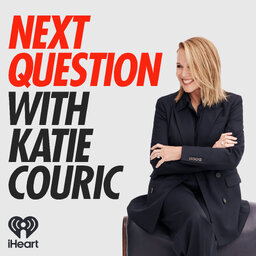Bill Browder used to be Russia's largest foreign investor. Then, in 2005, he was blacklisted by the Russian government and kicked out of the country. Now he's one of Vladimir Putin's most outspoken critics. He joins Katie and Brian to explain what went wrong, including how his own lawyer ended up dead in a Russian prison. Plus, Browder unpacks the perils and opportunities of a closer U.S. relationship with Russia and offers a chilling assessment of Putin.
Learn more about your ad-choices at https://www.iheartpodcastnetwork.com
 Next Question with Katie Couric
Next Question with Katie Couric


